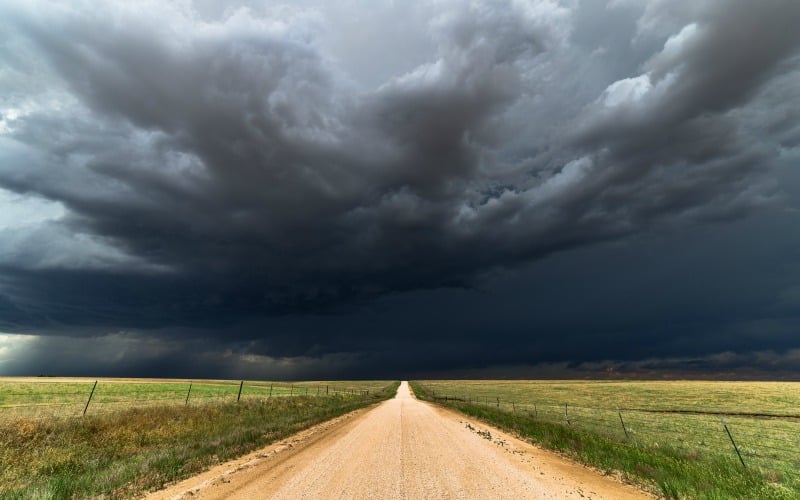A Forgotten Promise: Part Five
If It Were Not So: A Forgotten Promise – Part Five
Isaiah 66:23
“And it shall come to pass… from one Sabbath to another, all flesh shall come to worship before Me.”
The seventh argument people use against Sabbath keeping is: “After all these years, haven’t the days of the week been changed? Do we really know which day is the seventh day?”
No, the days of the week have not changed. In fact the days of the week have remained the same throughout history. Since the beginning of time God’s people, including Moses and the Jews, people have been following the weekly cycle and keeping every seventh day holy to God. Our weekly cycle is the same now as it was during Jesus’ life.
The change of Sabbath worship to Sunday did not happen immediately following Jesus’ death. In fact it was several hundred years before Christians began worshiping on Sunday (the day of the Sun) instead of the seventh day.
As I said before, no where in the Bible can be found a command to change the day of worship to Sunday. What do different church leaders say about God’s Law?
“We believe that the law of God is the eternal and imperishable rule of His moral government.” Baptist Church Manual
“The first four commandments set forth man’s obligations toward God… the fourth commandment sets forth God’s claim on man’s time and thought… Not one of the ten [commandments] is of merely racial significance… The Sabbath was established originally in no special connection with the Hebrews, but as an institution for all mankind, in commemoration of God’s rest after six days of creation. It was designed for all the descendants of Adam.” Adult Quarterly, SBC series, Aug. 15, 1937
Melissa’s Note: Jesus said, “Thou shalt love the Lord thy God with all thy heart, and with all thy soul, and with all thy mind. This is the first and great commandment. And the second is like unto it, Thou shalt love thy neighbor as thyself. On these two commandments hang all the law and the prophets.” Matthew 22:37-40
“There was and is a commandment to keep holy the Sabbath day, but that Sabbath day was not Sunday… It will be said, however, and with some triumph, that the Sabbath was transferred from the seventh day to the first day of the week… Where can the record of such a transaction be found? Not in the New Testament – absolutely not. There is no Scriptural evidence of the change of the Sabbath institution from the seventh day to the first day of the week.
“To me [it] seems unaccountable that Jesus, during His three years ‘ intercourse with His disciples, often conversing with them upon the Sabbath question… never alluded to any transference of the day; also that during forty days of His resurrection life, no such thing was intimated.
“Of course, I quite well know that Sunday did come into use in early Christian history as a religious day, as we learn from the Christian fathers and other sources. But what a pity that it comes branded with the mark of paganism, and christened with the name of the sun god, when adopted and sanctioned by the papa; apostasy, and bequeathed as a sacred legacy to Protestanism!” Dr. Edward T. Hiscox, author of the Baptist Manual (still in print) in a paper read before New York ministers’ conference held Nov. 13, 1893.
Dwight L. Moody said this, “The Sabbath was binding in Eden, and it has been in force ever since. The fourth commandment begins with the word ‘remember,’ showing that the Sabbath already existed when God wrote the law on the tables of stone at Sinai. How can men claim that this one commandment has been done away when they will admit that the other nine are still binding?” Weighed and Wanting, p. 47
“The moral law contained in the Ten Commandments, and enforced by the prophets, He [Christ] did not take away. It was not the design of His coming to revoke any part of this. This is a law which never can be broken…Every part of this law must remain in force upon all mankind and in all ages; as not depending either on time or place, or any other circumstances liable to change, but on the nature of God and the nature of man, and their unchangeable relation to each other.” John Wesley, Sermons on Several Occasions, Vol. I, Sermon XXV.
“I wonder exceedingly how it came to be imputed to me that I should reject the law of Ten Commandments…Whosoever abrogates the law must of necessity abrogate sin also.” Martin Luther, Spiritual Antichrist,” pages 71, 72.
“We must not imagine that the coming of Christ has freed us from the authority of the law; for it is the eternal rule of a devout and holy life, and must therefore be as unchangeable as the justice of God, which it embraced, is constant and uniform.” John Calvin, Commentary on a Harmony of the Gospels, Vol. 1, page 277.
What I don’t understand is that if the leaders of churches knew the law was still in effect, why they didn’t stand up for their beliefs? Preachers every where know that the seventh day is the true Sabbath. And yet, they do not proclaim it to their congregations. One day we noticed the sign outside of a local (Sunday-keeping) Church. It read:
It’s the Ten Commandments,
Not the Ten Suggestions!
Again, the Bible says:
“And hereby we do know that we know Him, if we keep His commandments. He that saith, ‘I know Him,’ and keepeth not His commandments, is a liar, and the truth is not in him. But whoso keepeth His Word, in him verily is the love of God perfected: hereby know we that we are in Him. He that saith he abideth in Him ought himself also so to walk, even as He walked.” 1 John 2:3- 6
Nearly every denomination admits that the law is still binding. The first annual Ten Commandments Day was on May 7, 2006. Why bother celebrating this day, if you don’t really believe in keeping all ten? When you go to their website www.tencommandmentsday.com and the very first thing you see are these words written in red:
Finally, a day in which we can come together and celebrate God’s eternal moral law.
These Christian men and women of the Ten Commandment Commission do not really believe in keeping the fourth commandment. Why not call it “Nine Commandments Day?” And yet they claim that they believe His law is eternal!
I am committed to taking a stand for what I believe. I know without a shadow of a doubt that the Bible is true – every bit of it. I know that God does not change and that His holy law is eternal. We will worship on the Sabbath in heaven!
“And it shall come to pass… from one Sabbath to another, all flesh shall come to worship before Me.” Isaiah 66:23
There is coming a day when the whole world will look with wonder at the antichrist – when the deceived will worship him. I know from Scripture that God’s people in the last days will be a commandment keeping people. I want to be a part of those people. I want my loved ones to be a part of those people as well. There may come a day when we cannot contact one another – that we are cut off. I want to know that my family is making the right decision.
I have noticed an alarming trend. There are more and more books coming out just in the last few years about keeping Sunday as a day of rest. You may have seen these books in you local Christian book store. Titles such as The Rest of God: Restoring Your Soul by Restoring Sabbath and Sabbath Keeping: Finding Freedom in the Rhythms of Rest.
These books are encouraging people to keep the Sabbath rest on Sunday. These authors are deceiving Christians into believing that Sunday is an important day of rest and worship when the Bible clearly says that the day of rest and worship is the seventh day.
The book synopsis of Sabbath Keeping: Finding Freedom in the Rhythms of Rest says this:
While Sabbath-keeping is commanded in the Bible, God intends it as a reminder of freedom and abundant life. Baab suggests that Christians customize their Sabbath: All are called to cease from work, but one person’s work could be another person’s play. (Baab also says the Sabbath may involve freedom from multitasking, technology, media, shopping, competition, talking and anxiety.) Also, she says, the day for the observance does not matter, as long as it is consistent. Baab covers the scriptural reasons for Sabbath observance, but the best sections of this work deal with the personal and the practical. Her account of living (and keeping the Sabbath) in Iran, Israel and the United States instructs and fascinates. One particularly helpful chapter about creating a Sabbath celebration offers tips about making the day special. Winsome, passionate and persuasive, this will convince many Christians of the continuing relevance of the Fourth Commandment.
Do you really want to follow man and not God? That is the prominent question in my own mind. I mean, who is this author to say it does not matter what you do, when you do it, or how you do it, when the Bible says something entirely different? God didn’t just say ‘Do not work on the Sabbath.’ Certainly one persons work is another person’s play; however, God said, “Remember the Sabbath, to keep it holy.” I would hardly think that going shopping if that relaxes you or renovating the house because you enjoy it is really keeping the Sabbath holy. Rather, it is doing ones own pleasure on the Sabbath day, which God asks us not to do.
“…turn away… from doing thy pleasure on My holy day…” Isaiah 58:13
God did not say, ‘Pick a day to worship me – whenever it is convenient for you.’ No, He said, ‘The seventh day is the Sabbath of the Lord your God.’
This does not mean you can’t have fun on the Sabbath or enjoy the day. It is lawful to do well on the Sabbath. There are so many things to do on the Sabbath – it would take weeks to do them all! Our favorite things to do on the Sabbath are going to church, fellowshipping with other Sabbath keepers, taking walks, going to the park for a picnic, or visiting people in our community. On Friday evening or even as the Sabbath comes to a close, one of my favorite events is Vespers. It is so wonderful to come together with other believers to welcome or close the Sabbath with songs and prayer and devotion. Not to mention the food and fellowship. What a blessing! The Sabbath should be a celebration of time with our Creator. The foundation is being laid for Christians to accept that Sunday is the day of worship and be deceived in the last days.
Come back tomorrow for Part Six of A Forgotten Promise, part of the If It Were Not So… Series.







